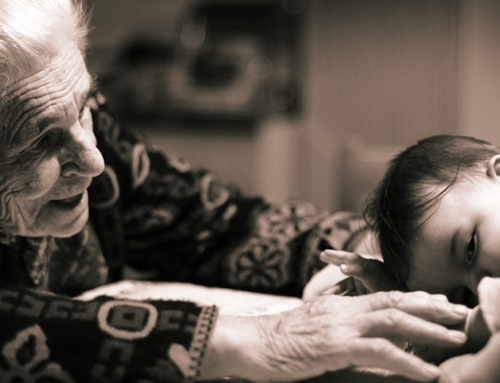By: Laura El Alam
Navigating the Challenges of Explaining Your Decision to Loved Ones
When I embraced Islam nearly 23 years ago, I remember making shahada by testifying that there is one God, and that Muhammad (peace and blessings be upon him) is His prophet. My heart and mind were at peace with this decision. Pressing my forehead to the prayer mat for the first time felt like coming home. That was the easy part.
The hard part, for me, was explaining my decision to family and friends. Most of them knew little or nothing about Islam, except for stereotypes and misinformation they’d gleaned from TV and movies. My family was Catholic, and my friends were mostly agnostics and feminists. I suspected that no one would respond enthusiastically to my decision and, to be honest, most of them didn’t. But in retrospect, I’m not sure that I handled it very well.
Since hindsight is 20/20, I’m here to share what I’ve learned from my own mistakes. I hope my words can help new Muslims share the news of their conversion more effectively and strategically than I did.
Preparing for the Talk
Things to keep in mind before you have “the talk” about your conversion:
Positive Communication
Don’t make assumptions. One of my mistakes was expecting the worst of my loved ones; I presumed they’d all react negatively to my decision, and that made me defensive and anxious from the beginning. If you start off the discussion with the assumption that your family and friends will be unsupportive or hostile, they will pick up on your attitude, and this will sabotage the mood of the conversation. Instead, try to convey calmness, positivity, self-assurance, and optimism. Maybe the conversation will go really well!
Share the Joyful News
Don’t make it sound like you’re sharing bad news. If you start your announcement with a somber, “Please sit down. There’s something I need to talk to you about,” your loved ones might panic. Instead, stay upbeat. After all, embracing Islam is something to celebrate. Saying, “I have some exciting news to share with you!” will start things off on a much better note.
Prepare for Sharing
Prepare ahead of time. You might want to write down some notes to remember the key points you want to share with your loved ones. Try to foresee some of their questions and concerns and address these in your delivery. Without being too preachy, share some of the things you love about Islam and how you expect it will change your life for the better. Make it clear that this is your choice and that it was made after much deliberation, research, and soul-searching.
Dealing with Negative Reactions
If, despite your best efforts, your loved ones still react in a negative way, don’t lose hope. Keep in mind that fear is behind most of their emotions and reactions. They might act shocked, argumentative, unsupportive, judgmental, disbelieving, or a variety of other reactions, but behind all of these emotions, I think, is apprehension.
The Fear of Change
What are they afraid of? Change can be scary for many people. They might worry that you’ll become a different person altogether and that you’ll grow apart from them. They might conclude that your conversion to Islam will affect their own life in some detrimental way. They might start listing all the things they think you will be deprived of, such as dating, alcohol, pork, and wearing revealing clothing. Depending on their religious beliefs, your loved ones might worry about the fate of your soul. In their ignorance, they might even fear that you’ll be “less American” (or less European, or less whatever) as a Muslim. Much of this anxiety is fueled by a lack of knowledge, which brings us to the next point.
Strategic Education
Educate, but use your energy strategically. You will probably find that most of your loved ones lack basic information about Islam. There is a lot of teaching to do! But you’re going to need to prioritize who deserves your time and effort. People who are very close to you, whom you want to remain in your life, and who are incapable or reluctant to do their own research will probably be the ones you need to invest the most time and patience in. This might include your parents, grandparents, or closest relatives. Casual friends, coworkers, and neighbors can all do their own research about Islam if they really want to know. Www.whyislam.org is a great place for them to start! It’s not your duty to teach the whole world about Islam or to justify your decisions to everyone you meet. And remember, this is your soul and your decision. You can hold your head high as a person of integrity and sincerity who has chosen a noble path.
Embracing Islam
While you will need to educate some people, remember that you don’t have to know everything from the very beginning. Confrontational non-Muslims might try to challenge you, and curious people might ask complex questions that you don’t know the answer to yet. It’s ok if you don’t know it all when you’re new to Islam! It’s fine to admit that you are still learning. It’s valid to say you need more time to seek answers. Not knowing every single aspect of Islam doesn’t make you a weak Muslim and it shouldn’t shake your faith. Besides, there are few, if any, adherents of any faith that know everything. Most people are on a spiritual journey of learning, growing, and improving.
Time Heals Wounds, Building Acceptance & Allies
Know that time will heal most wounds. My conversion came as a shock to many of my loved ones, and our relationship was strained for a while. But over time, as they saw the kind of person I became, almost all of them became more accepting. In fact, many became staunch allies of me and of Muslims in general.
Nurturing Family Ties
Make sincere efforts to spend quality time with your loved ones. One of the most difficult things for non-Muslim family members to adjust to is your absence at holiday gatherings. If your family has religious traditions that mean a lot to them, they will likely be very sad if you do not join them. To reassure them that you still want to be part of their lives, gather with them at other times. Give them gifts “just because.” You can still celebrate secular holidays, birthdays, and other occasions with them. Also, some scholars argue that converts can even spend religious holidays with their non-Muslim family members for the purpose of preserving family ties. Consider watching this lecture on the topic from Sh. Dr. Yasir Qadhi: https://www.youtube.com/watch?v=d06pfXTUQWs
Leading by Example: The Subtle Art of Dawah in Everyday Life
Let your actions and example do the talking. Dawah, or calling others to Islam, is an important duty for us Muslims. However, inviting others to Islam is an art form. We should not be too pushy or preachy, lest we drive people away. The best form of dawah will be found in our manners. When people see us being honest, kind, respectful, wholesome, modest, and clean, they will learn a great deal about Islam and its core values. You don’t need to impose your faith on your loved ones; just live a life of integrity and they will be intrigued to learn more.
Want to know more? Call 877-WhyIslam or visit whyislam.org. You deserve to know!
Author bio: Laura El Alam is a first-generation American Muslim and the author of over 100 published articles. She has written a children’s book, Made From the Same Dough, due to be released in 2023. You can visit her online at www.seaglasswritingandediting.com.
Got Questions?
We have Answers. Get in touch now.








